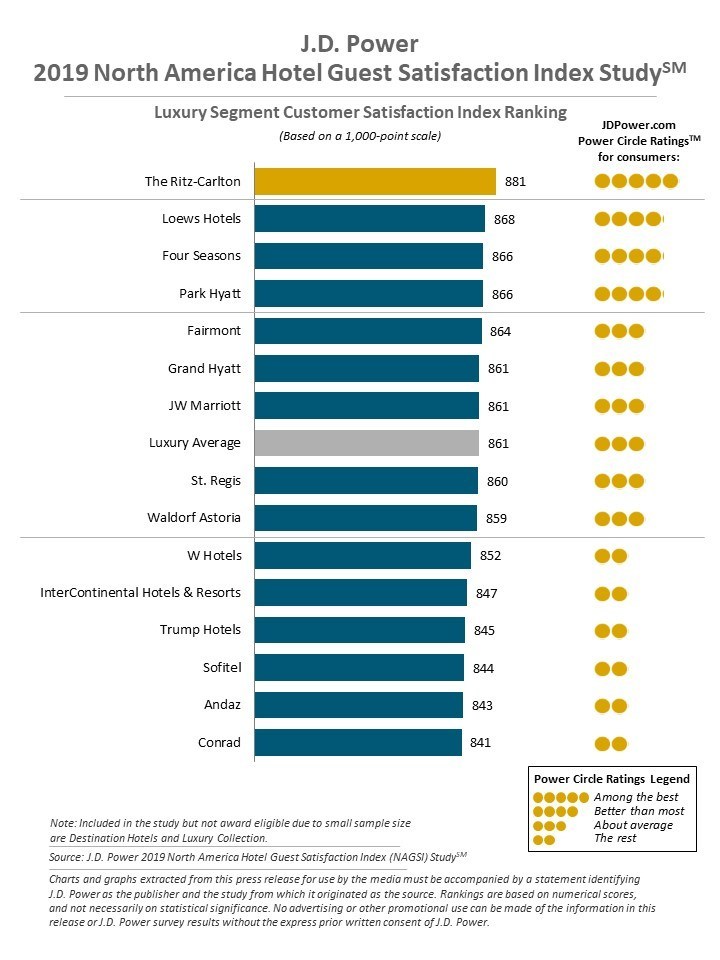What’s more important than the minibar, the sleek lobby and mints on the pillow? For frequent travelers that would be sleep. Hotels interested in building loyalty find they can please their customers with stand-out lodging experiences, but if they want to wow and delight them, they need to beat the competition on the bed.
According to the latest J.D. Power North America Hotel Guest Satisfaction Index just released, quality of sleep is one of the most important components of a hotel guest experience with the potential to drive overall satisfaction and brand loyalty, but most of the hotel brands in the U.S. are not delivering better-than-expected sleeping conditions.
The North America Hotel Guest Satisfaction Index Study, not in year 23, was redesigned this go-‘round to incorporate much deeper guest profiling information and extended coverage of the full hotel customer journey, including the path to purchase, pre-stay communications and post-stay communications.
Following are some key findings of the 2019 study:
Needs for More ZZZs: Overall satisfaction scores increase 114 points (on a 1,000-point scale) when hotel guests experience a better-than-expected quality of sleep. However, just 29% of hotel guests had such an experience. Of guests who do experience better-than-expected quality of sleep, 78% say they “definitely will” return to that property and 71% say they “definitely will” return to that brand.
Engineering Sleep: The top contributors to quality of sleep and, therefore, higher satisfaction scores, are comfort of bed; quietness of room; comfort/quality of pillows; room temperature; and comfort/quality of linens. Satisfaction scores for quality of sleep are also higher when hotels offer beyond-the-basics items, such as white noise/sound machines, earplugs, robe/slippers and authentic local decor.
Sleep Quality and Room Rate: The study found that quality of sleep directly correlates to the price of room. The highest rate of better-than-expected sleep quality is in the luxury hotel segment (42%), followed by the upper upscale (33%), upscale (31%), upper midscale (28%), midscale (28%) and economy (23%) segments.
Arrival and check-in experiences: The key elements of the check-in experience consistent with high hotel guest satisfaction scores are efficiency (ideally takes five minutes or less); accuracy; and offering a warm welcome. When any of those baseline criteria are not met, satisfaction scores tumble as much as 100 points.
Study Rankings
The following hotel brands rank highest in guest satisfaction in their respective segments:
Luxury: The Ritz-Carlton (for a fifth consecutive year)
Upper Upscale: Hard Rock Hotel
Upscale: Best Western Premier
Upper Midscale: Drury Hotels (for a 14th consecutive year)
Midscale: Wingate by Wyndham (for a fifth consecutive year)
Economy: Microtel by Wyndham (for a second consecutive year)
“Delivering a superior sleep experience—from the quality of the bed, linens and pillows to the ambient sound and temperature of the room—is a huge opportunity for hotels to differentiate themselves from the pack and earn significant goodwill with guests,” said Jennifer Corwin, Senior Manager of Consumer Insights for Travel & Hospitality Intelligence at J.D. Power. “Of all the discrete variables of the hotel guest experience we measure, a better-than-expected night’s sleep is the one with the potential to drive the highest levels of overall guest satisfaction for those hotels that can deliver.”

































































































































































































































































































Get Social